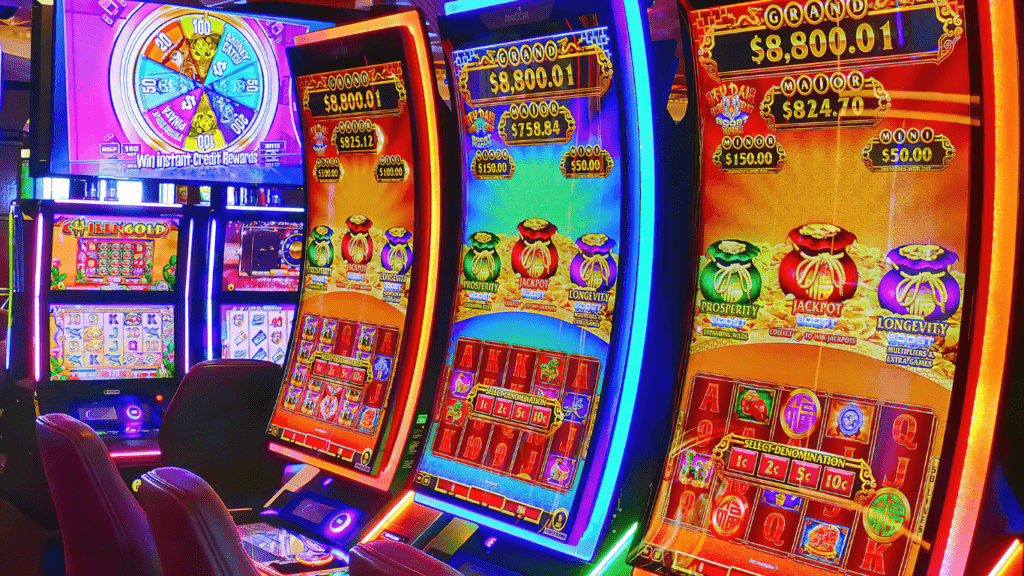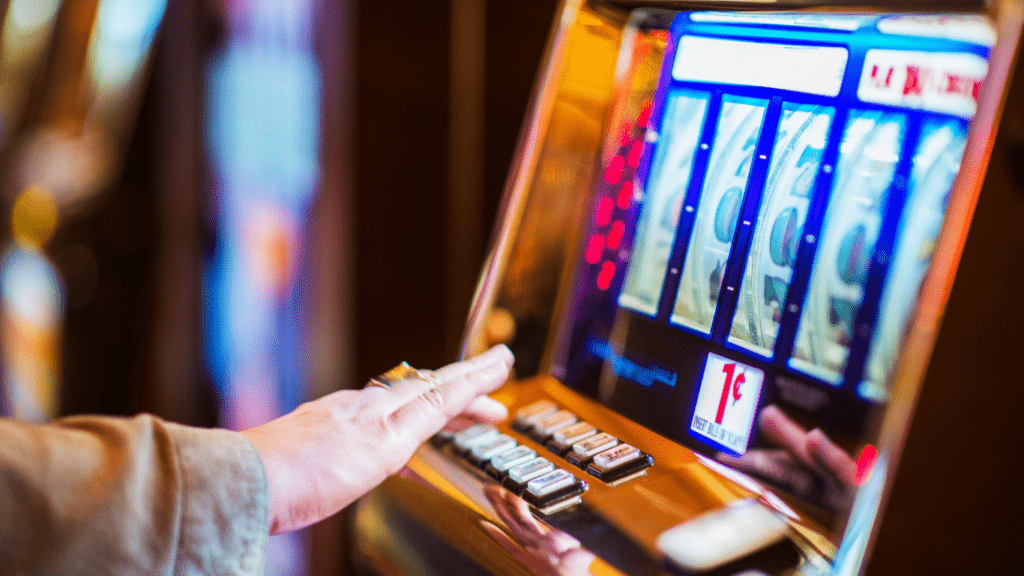Slot games might seem like pure luck, but there’s more to winning than just spinning the reels. Over the years, I’ve learned that a smart strategy can make all the difference between walking away empty-handed or enjoying a satisfying win. It’s not just about pressing a button—it’s about knowing how to play smarter.
Understanding Slot Games
Slot games combine chance, technology, and design. Understanding their structure and variations helps optimize gameplay and make more informed choices.
The Basics of Slot Mechanics
Slot machines operate using random number generators (RNGs) to ensure outcomes remain unpredictable. Each spin is independent, meaning previous results don’t influence future ones. Symbols align across paylines, determining payout amounts based on the game’s paytable. Modern slots often include features like:
- wilds
- scatters
- bonus rounds
to diversify play. Payout frequency ties directly to slots’ return-to-player (RTP) percentages. Higher RTPs, such as 96% or above, return more winnings over time. Volatility levels—low, medium, or high—indicate the frequency and size of payouts. Low-volatility slots provide frequent but smaller payouts, while high-volatility options yield rarer, higher rewards.
Types of Slot Games and Their Features
Slot games fall into several categories, each catering to different player preferences. Classic three-reel slots focus on simplicity, offering straightforward paylines and symbols like bars, bells, or sevens. Video slots introduce complex graphics, diverse themes, and interactive features, including storylines or leveled bonus games.
Progressive jackpots pool contributions from multiple players, leading to massive, often seven-figure prizes. Branded slots tie into movies, TV shows, or celebrities for immersive experiences and shared fan appeal. Themed slots use creative elements, such as ancient civilizations or fantasy worlds, to enhance engagement.
Adjusting strategies based on a slot’s specific mechanics and features can significantly impact long-term success.
The Importance of Strategy in Slot Games
Slot games combine entertainment and chance, but incorporating effective strategies enhances the overall experience and outcomes. Strategic gameplay allows me to rely on thoughtful decisions rather than leaving everything to luck.
Why Strategy Matters for Long-term Success
- Strategy shapes consistent results over time by managing risks and rewards.
- I focus on bankroll management to set clear betting limits, helping me avoid overspending during losing streaks.
- Choosing games with high return-to-player (RTP) percentages, such as 96% or higher, minimizes losses and boosts potential wins.
- Understanding volatility levels influences my gameplay; low-volatility slots provide frequent smaller payouts, while high-volatility ones offer bigger rewards but less frequently.
- Analyzing paytables helps me identify high-value symbols and bonus features, improving my chances of triggering substantial payouts.
Common Misconceptions About Slot Strategies
Believing that slot outcomes can be controlled misleads many players. I recognize that random number generators (RNGs) make results entirely unpredictable, eliminating any guaranteed wins. Another false notion is that “hot” or “cold” machines exist; each spin remains independent of previous outcomes. Treating slot strategies as tools to manage sessions rather than ways to manipulate results ensures my approach stays realistic.
Smart Spins: Essential Tips to Improve Your Slot Game Strategy

Improving slot game performance requires a mix of knowledge, disciplined planning, and efficient use of resources. Implementing these essential tips can elevate gameplay and enhance winning potential.
Managing Your Bankroll Effectively
I allocate a specific amount for each session to avoid impulsive spending. By dividing my bankroll into smaller portions and sticking to a predetermined betting range, I minimize risks. For instance, if I plan for a $100 session, I avoid exceeding $2-$3 per spin to ensure longer playtime.
Choosing the Right Slot Machine
I select machines based on their RTP and features rather than just themes or aesthetics. Games like those with RTP values above 96% or low-medium volatility cater to steady wins. For instance, I prefer video slots over progressive jackpots when pursuing consistent payouts, as they tend to offer better odds.
Understanding RTP and Volatility
RTP and volatility guide how and where I place my bets. An RTP of 95% means I can expect $95 back for every $100 wagered over time. I also balance low-volatility slots for frequent, small wins with high-volatility games for larger, less frequent payouts, depending on my session goals.
Leveraging Bonuses and Promotions
I maximize deposit matches, free spins, and loyalty rewards to extend my gameplay. Many casinos offer promotional campaigns, like 50% bonus offers, which I use on high-RTP slots to enhance value. Checking terms ensures that traffic-heavy games don’t excessively impact wagering requirements.
Setting Win and Loss Limits
I determine clear caps before starting each session. For instance, if I achieve a 50% profit or lose 20%-30% of my bankroll, I stop playing. These limits keep my decisions rational and reduce the impact of emotions during winning or losing streaks.
Mistakes to Avoid While Playing Slots
Avoiding common mistakes can help me improve my slot game strategy and minimize unnecessary losses. Recognizing these errors ensures I approach slot gaming responsibly and effectively.
Overlooking Game Rules
Understanding a slot game’s rules directly impacts my success. If I ignore important details like payline structures, bonus triggers, or wagering requirements, I risk missing opportunities for higher payouts. For example, some games require activating all paylines to unlock bonus rounds or jackpots. Reviewing the paytable and features before playing allows me to maximize every spin.
Chasing Losses
Increasing bets to recover lost funds creates bigger risks than rewards. When I chase losses, I rely on emotions rather than strategy, leading to excessive spending. Slot machines use RNGs, so prior outcomes don’t influence future results. Sticking to predefined budgets and accepting losses as part of the game keeps my gameplay disciplined and balanced.
Ignoring Responsible Gambling Practices
Neglecting responsible gambling principles can harm financial and mental well-being. If I gamble without limits, proper planning, or breaks, I risk losing control over my sessions. For instance, setting both time and monetary limits ensures I enjoy the game without overextending myself. Using tools like self-exclusion programs or deposit limits can further support safe and sustainable gaming habits.




